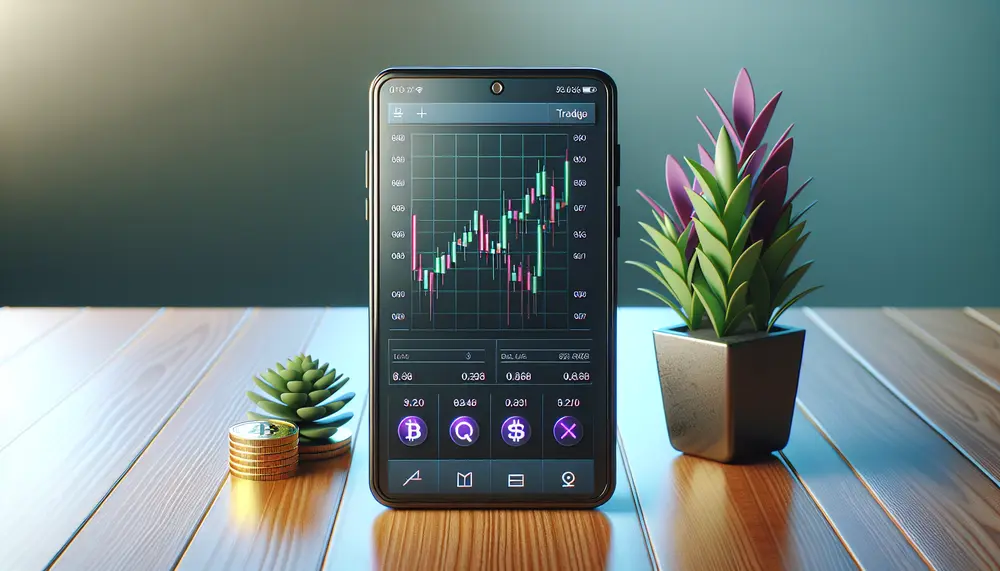Day Trading
Day Trading
Understanding Day Trading in Cryptocurrency Option Trades
Day Trading refers to a popular short-term trading technique where a trader buys and sells a particular financial instrument multiple times within a single trading day. The intent is to make quick profits from small price movements.
The Core of Day Trading
Traders who engage in Day Trading are often called "Day Traders". They closely monitor the market's moment-to-moment fluctuations, looking for quick changes in the direction of price trends. As trading revolves around real-time assessment and rapid decision-making, day traders require a solid grasp of technical analysis and trading platforms.
Day Trading with Cryptocurrencies
In the realm of cryptocurrencies, Day Trading can be especially profitable due to the volatility of digital currencies. Unlike traditional markets, cryptocurrency markets operate 24/7, providing endless opportunities for traders to profit from price fluctuations.
Day Trading versus Option Trading
In contrast to Day Trading, Options Trading revolves around buying or selling the opportunity, or 'option', to purchase or sell a principal asset at a specified price before a given date. Like Day Trading, Options Trading can be applied to cryptocurrencies, but the risk and reward dynamic can differ significantly.
Combining Day Trading with Options in Cryptocurrencies
Combining the principle of Day Trading with the flexibility of Options Trading can give cryptocurrency traders a unique advantage. Using Options, a Day Trader could, for instance, secure the right to buy a certain cryptocurrency at its current price, hoping to sell it off later in the day for a profit when the price rises.
Risks and Precautions in Day Trading
It is important to remember that Day Trading in any market, including cryptocurrencies, comes with substantial risk. Prices can swing unpredictably, leading to potential losses. Traders need to maintain strict discipline, incorporating stop-loss orders, and keeping abreast of market news. Day Traders should only trade with funds they are willing to risk.
Blog Posts with the term: Day Trading

Option trading can enhance returns, but mastering entry and exit strategies is crucial for success. This article covers key indicators like moving averages, RSI, Bollinger Bands, MACD, and volume to help traders make informed decisions on when to enter or...

Option trading on expiry day involves heightened volatility and the potential for significant gains or losses as traders make final decisions regarding their positions. It's a critical time with specific rules, timelines, and phenomena like 'pinning' affecting market behavior; understanding...

Option trading is a versatile investment strategy that involves buying and selling options, which are contracts granting the right to buy or sell an asset at a set price within a specific period. The article covers fundamental concepts like call...

Option trading and intraday trading are two distinct methods with their own mechanics, benefits, and risks; option trading involves contracts for future buying or selling rights without obligation, while intraday trading focuses on quick profits from same-day stock trades. Understanding...

Option trading and future trading are two distinct financial instruments for portfolio diversification, with options providing the right to trade without obligation and futures requiring a binding agreement. Options involve lower initial investment but limited risk exposure, while futures have...

Option trading offers two distinct styles: intraday and delivery. Intraday involves quick trades within a single day using leverage, aiming for short-term profits but with high risk due to market volatility; whereas delivery is long-term, seeking asset appreciation and dividends...

Option trading is an investment strategy where traders have the right to buy or sell assets at a set price before expiration, offering high returns and managed risks through call and put options. Intraday trading involves buying and selling financial...

Option trading involves buying or selling contracts, known as options, that grant the right to buy (call option) or sell (put option) an underlying asset at a set price before expiration; it requires understanding strike prices, premiums influenced by volatility...

Option trading indicators are essential tools for analyzing market trends and making informed decisions, with different types serving various purposes such as trend identification and volatility measurement. While not foolproof, these indicators help traders predict market movements and refine their...

Option trading involves contracts granting the right to buy or sell assets at a set price before a certain date, used for hedging and speculation; stock trading is direct share purchasing, offering equity ownership in companies. Both have distinct approaches...

Option trading involves contracts for buying or selling assets at a set price by a certain date, while forex trading is the exchange of currencies to profit from value changes. Both have unique strategies and risks; options offer strategic flexibility...

Option trading in the UK allows investors to buy or sell assets at a predetermined price, with two main types: calls and puts. It requires understanding of leverage, expiration dates, strike prices, and is regulated by the Financial Conduct Authority...

Option trading bots are automated tools that use advanced algorithms to execute trades, analyze market data in real-time, and manage risks efficiently. These bots offer numerous advantages such as consistency, speed, 24/7 operation, backtesting capabilities, and sophisticated risk management techniques...

The article discusses the importance of choosing the best option trading app, emphasizing features like intuitive interface, robust security, and educational resources to enhance user experience. It highlights TastyWorks as a top contender for its user-friendly design tailored specifically for...
